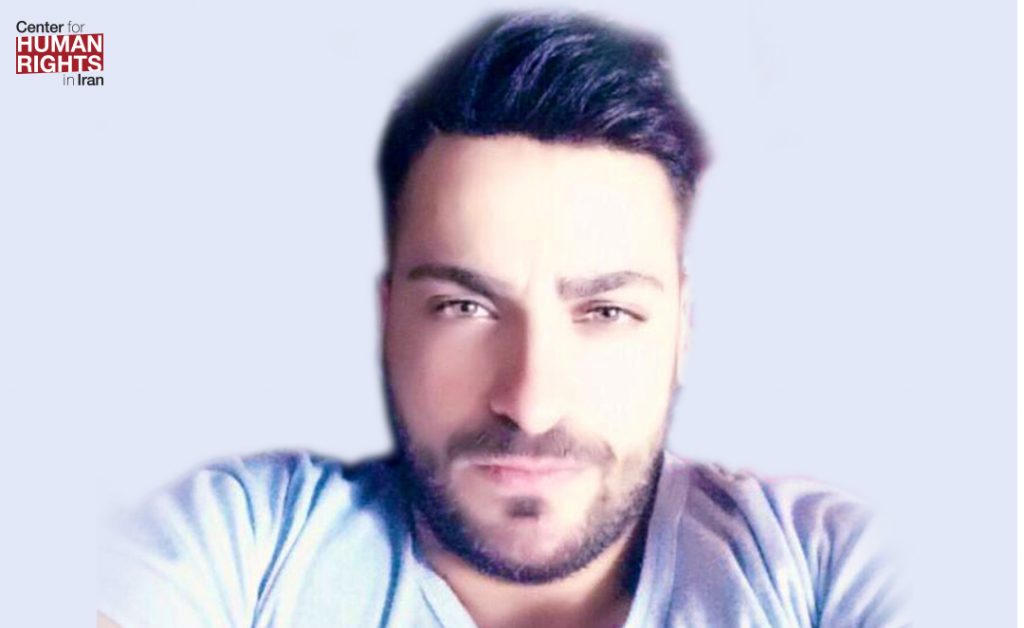Stricken With Chicken Pox, Political Prisoner Alireza Tavakoli Hunger Strikes for Medical Treatment

JANUARY
4, 2019
Prisoner of conscience Alireza Tavakoli, currently imprisoned in
Tehran’s Evin Prison for his social media postings, is hunger striking to be
“transferred and treated at a medical center for chickenpox,” a source with
knowledge of the case told the Center for Human Rights in Iran (CHRI).
“They say he has caught
chickenpox but he has been put in isolation without proper treatment in an area
of the clinic that has no heating,” said the source who requested anonymity to
protect their personal security.
“They are refusing to take him
to a hospital for treatment,” added the source. “They have only separated him
from the rest of the prisoners. He must have contracted the disease from an
infected area inside the prison. There should be an investigation.”
Chickenpox is a highly contagious
viral infection that causes blisters on the skin. Symptoms include fever, loss
of appetite, headache and malaise. While usually mild, the disease can be
serious and lead to complications or death especially in high-risk people.
Tavakoli has been imprisoned
since the summer of 2016 for allegedly publishing photos and articles via the
Telegram messaging app that were critical of Iran’s political and economic
affairs.
Agents of Iran’s Intelligence
Ministry, which operates under President Hassan Rouhani, arrested Tavakoli and
co-defendants Mohammad Mehdi Zamanzadeh and Mohammad Mohajer in Tehran.
In April 2017, they were tried
at Branch 15 of the Revolutionary Court presided by Judge Abolqasem Salavati
who sentenced all three to 12 years in prison under the charges of “insulting
the sacred” (five years), “assembly and collusion against national security”
(five years) and “insulting the supreme leader” (two years) in posts on
Telegram.
The sentences were later
reduced to two and a half years in prison upon appeal, the source told CHRI.
“Reports about the deaths of
prisoners in custody have made Alireza more worried that he could also simply
die in prison without any official taking responsibility,” said the source.
“He said he does not want to
die of chicken pox while he only has a few months left until the completion of
his sentence,” added the source. “That’s why he’s hunger striking until they
take him to the hospital.”
The death of Vahid Sayyadi-Nasiri in December 2018 after he
was transferred from Langroud Prison in Qom where he was being held to Shahid
Beheshti Hospital where he died following a prolonged hunger strike has put the
spotlight on the importance of Iran’s State Prisons Organization (which is
responsible for prisoners) and the judiciary to which it reports immediately
addressing the needs of political prisoners in Iran in accordance with Iran’s
domestic and international legal obligations.
In addition to political
prisoners dying following hunger strikes, some prisoners have reported
suffering irreparable harm due to the denial o medical treatment while in state
custody.
In August 2017, former
political prisoner Alireza Rajaee lost part of his face due
to an operation for sinus cancer that was left untreated in Evin Prison.
Three months later, in October
2017, labor activist Mohammad Jarrahi died from thyroid cancer that
was left untreated while he was held as a political prisoner in Tabriz Prison.
Fellow labor activist Shahrokh Zamani had also died of a heart attack in September 2015 after
being denied medical care in Rajaee Shahr Prison.
Political prisoner Omid Kokabee was diagnosed with
advanced kidney cancer in 2016 after years of repeatedly being denied treatment
for his symptoms in Evin Prison.
No comments:
Post a Comment